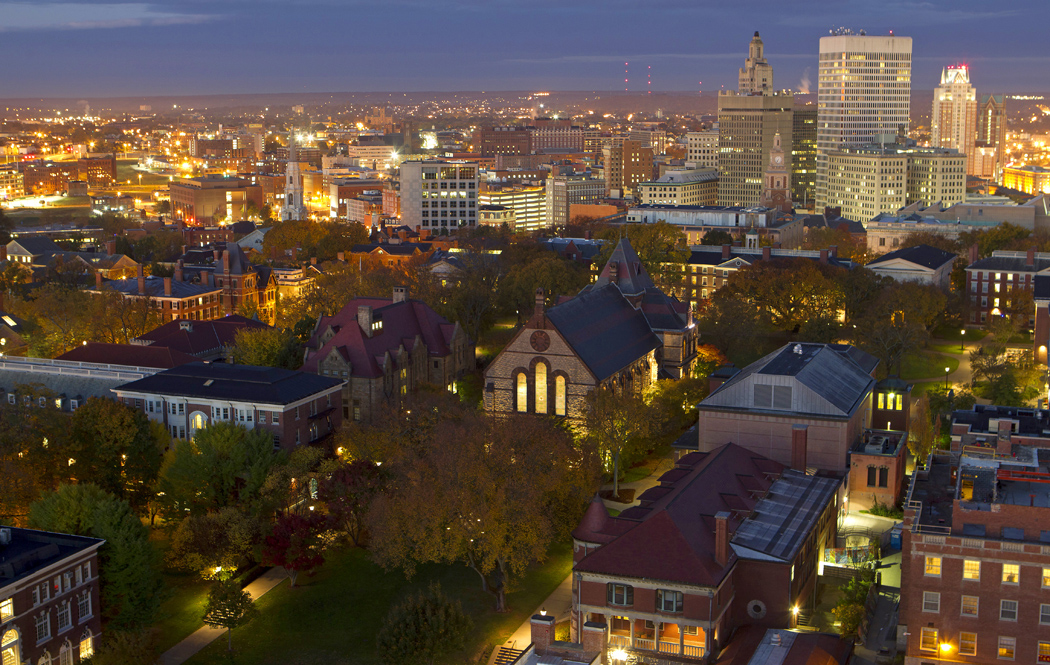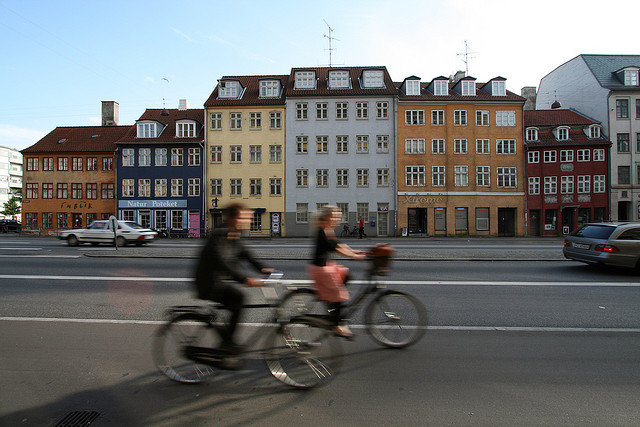What does Copenhagen have in common with Providence, Rhode Island? Both are small cities known globally for their arts and design communities, academics, and their locations as “gateway cities” in their regions.
But each is unique as well:
From our partners:
Copenhagen, for example, is a world leader in bike infrastructure and energy independence,
and Providence is becoming known for its unique approach to mentoring innovators working in areas ranging from design, to social entrepreneurship, to edtech.
These cities—along with other small cities around the world—have important lessons to learn from each other.
Two years ago I set out on a journey to discover how cities could collaborate with one another, inspired by my own experience living and working in a smaller city, and after advising students from Brown University and Rhode Island School of Design on A Better World by Design, a conference that brings people together from around the world to discuss and progress cutting-edge initiatives on making the world a better place to live. Thousands of hours of research later, after talking to colleagues across the globe, I came up with a new model for connecting cool smaller cities with populations of 1.5 million or less and exploring collaborative opportunities in the areas of arts and culture, economic development, entrepreneurship, policy, and student engagement. It’s called Smaller Cities Unite!
What if smaller cities and their residents explored interesting and impactful ways in which they could collaborate, creating new paradigms for problem solving, product and policy development, as well as engaging its citizenry, particularly its student populations? Smaller Cities Unite! is a platform that wishes to explore a new form of citizen diplomacy—one that is based on trust, respect and action, proving to the world that smaller cities can align quickly, open their networks easily, and create new kinds of relationships leading to unique forms of engagement.
Smaller cities understand and work within the confines of their size each and every day. Size matters, and smaller cities have the power to enlist professional (and personal) networks in order to bolster ideation and ultimately create meaningful change quicker than their larger counterparts. Cities with complementary resources, experiences, and challenges can work together if they view what they do well as “exportable,” have an underlying environment of learning and teaching, and are seeking active ways to engage citizens.
Smaller Cities Unite! will ignite and catalyze new relationships, which can:
[infobox]Find new ways to engage its student populations through internships and projects aimed at creating change, promoting place, and developing new ventures (e.g., internships, job opportunities, case studies and classroom projects based on real-world issues).
[/infobox] [infobox]Create new forms of arts and cultural exchanges between cities that were once non-existent (e.g., exploring ways to promote up-and-coming individuals’ work in various communities; learning from different arts and culture models dealing with education, learning and creativity; inviting unique artistic endeavors into new locales; viewing the arts as a form of cultural export that can benefit other communities as well).
[/infobox] [infobox]Foster student and professional exchanges that can take full advantage of each community’s academic assets (e.g., through coursework, case studies, classroom learning, experiential learning, and research).
[/infobox] [infobox]Leverage existing events and conferences to engage other communities and showcase an interest in building new bridges of understanding between locales (i.e., inviting change agents/innovators to participate in each locales world-class conferences and events).
[/infobox] [infobox]Enhance the quality of interaction of cities by opening new channels of understanding and information sharing (e.g., how can a city become more bikeable or bike-friendly; awareness of each others unique startup communities)
[/infobox] [infobox]Explore new economic development opportunities on both large and small scales (i.e., import/export of physical products as well as new business models).
[/infobox]
One month ago, several entrepreneurs based in Rhode Island believed in this venture enough to fund an exploratory mission to Copenhagen. Over an 11-day period I met with students and professionals representing Aalborg University-Copenhagen, IT University of Copenhagen, Danish Design Association, Copenhagen Business Academy, Copenhagen Business School, Copenhagen School of Design & Technology (KEA), State of Green, Danish App Lab, Silicon Vikings, Creative CPH, Copenhagen Free Walking Tours, Startup Bootcamp Copenhagen, Cykelsuperstier, Goodvertising Agency, Institute for Happiness, Bicycle Innovation Lab, Copenhagenize, Danish Cyclists’ Federation, Gehl Institute, VisitDenmark, Copenhagen Post, and numerous startups.
When I think of these assets linking up with assets we have in Providence in the form of faculty and students from our leading institutions of higher education like Brown University, Rhode Island School of Design, University of Rhode Island, Providence College and Johnson & Wales University, etc.), entrepreneurial and design communities (e.g., DesignxRI, a statewide design movement; Betaspring, a widely respected global startup accelerator program, it’s alumni and mentors; and an arts organizations (e.g., The Steel Yard, AS220) and events that is known the world over (e.g., A Better World by Design, BIF Summit, Waterfire, and FirstWorks, etc.), the possibilities to exchange knowledge, ideas, products, and people seem limitless.
I met many individuals who were open to creating new bonds, partnerships, and collaborations with another community of creative talent. I found that these individuals appreciated the idea of expanding their networks, having the opportunity to progress projects in both cities. But most importantly, I found in both cities, a lack of awareness of the other, but a genuine interest to learn more. That is a great place to start.
This feature adopted Good and Andy Cutler.
















